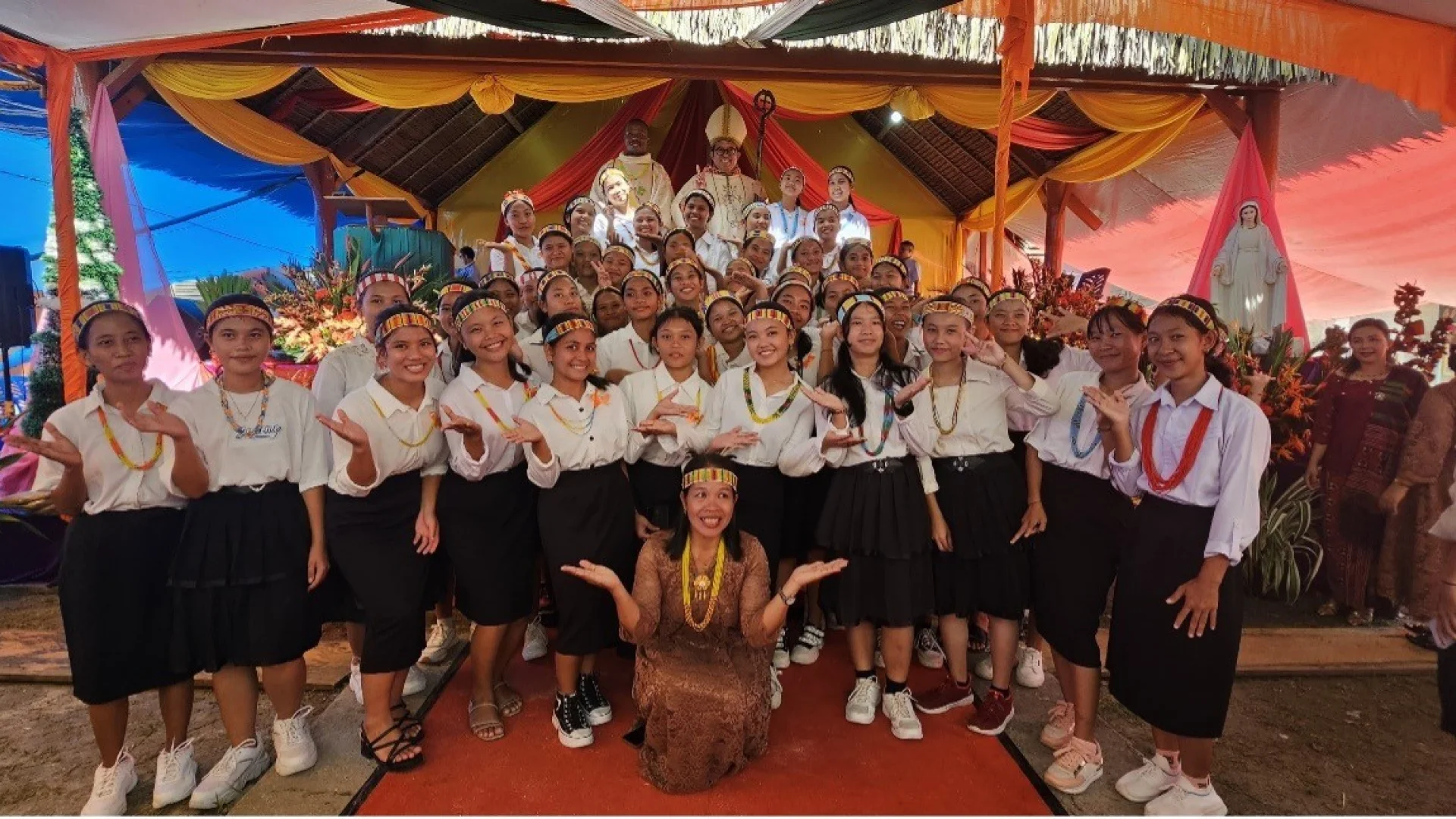Fresh News from the Worldwide Network of the Xaverian Missionaries – 1.3.2025
The Church is ever growing in Mentawai Island, Indonesia: 70th anniversary of the Presence of the Xaverian Missionaries

On December 24, 1954, at Christmas, the first 10 Mentawai Catholics marked the beginning of evangelization in the Mentawai Islands, West Sumatra Province, Padang Diocese, Indonesia. This was preceded a year earlier by a survey of the territory carried out by our late brother, Father Aurelio Cannizzaro. Now, 70 years have passed since the Mentawai people embraced the Gospel of Jesus Christ, shaping their life and culture. 70 years of faith experience is an occasion for celebration.
On Sunday, December 29, 2024, Our Lady of the Assumption Parish, Muara Siberut, was the host to celebrate this event. We celebrated the platinum jubilee together, a moment of great joy. From a single parish born then, today we have reached 8 parishes, and the 9th is about to be inaugurated. As the only Catholic family from all corners of the islands, we celebrated together. The celebrations lasted a month, marked by a volleyball and soccer tournament, games and moments of prayer.
The event was attended by a dozen priests who concelebrated with Bishop Vitus Rubianto Solichin, left. During the Eucharistic celebration, 76 people received the sacrament of confirmation and a dozen others were commissioned to become extraordinary ministers of communion. This is a sign that the Church is continually growing in the Mentawai.
WEEK OF PRAYER FOR CHRISTIAN UNITY 2025: “Do You Believe This?” (John 11: 26)
he Dicastery for Promoting Christian Unity has made resources available for the Week of Prayer for Christian Unity 2025. In the Northern Hemisphere, traditionally, the Week of Prayer is held from January 18th to 25th, while in the Southern Hemisphere, where January is often a holiday season, the week is usually celebrated close to Pentecost.
The Week of Prayer for Christian Unity 2025 theme is drawn from the Gospel according to John: “Do you believe this?” (John 11: 26). The prayers and reflections were prepared by the brothers and sisters of the Monastic Community in Bose, north Italy. As usual, an international group jointly appointed by the Dicastery for Promoting Christian Unity and by the Commission on Faith & Order of the World Council of Churches worked with the editors for the final version of the material.
2025 will mark the 1,700th anniversary of the First Ecumenical Council. This commemoration provides a unique chance for reflecting and celebrating the common faith of Christians, as it was expressed in the Creed worded during that Council.
ASIAN CONTINENT – CONFUCIUS AND “BEING HUMANE”: dé德(virtue) and rén仁 (benevolence or “humanity”)
Confucius, who lived between 551 and 479 B.C., left an enduring mark on Chinese culture. In recent times, however, his philosophy, characterized by principles aiming at promoting social harmony and individual virtue, has moved beyond the borders of China.
Technological development has undoubtedly improved the life of modern men, but the balance between material progress and spiritual progress has been lost. Confucius’ teachings about virtue (dé德) and “humanity” or benevolence (rén仁)may help regain such balance, not least because they are universal and timeless. Confucius teaches to cultivate one’s morality and integrity through continuous self-improvement, simultaneously leading to a more harmonious society. Confucian ethics includes the invitation to reflect upon one’s behavior and treat others with respect and benevolence. This is the core content of virtue, which refers to the intrinsic moral qualities a person should cultivate, while humanity is about benevolence to and respect for others.
In Confucius, the attention given to oneself is never an end; instead, it promotes social harmony: “Cultivate himself with deference and bringing harmony among his peers.” In Confucian social ethics, equality and justice are fundamental; the ruler should be a model of virtue and govern with justice and compassion. According to Confucius, acting with virtue and adopting the rites as social standards encourage virtuous behaviors and deter people from committing wrong actions.
The Confucian concept of rén (仁) constitutes a call to search for the collective good and to consider others whenever one acts.



